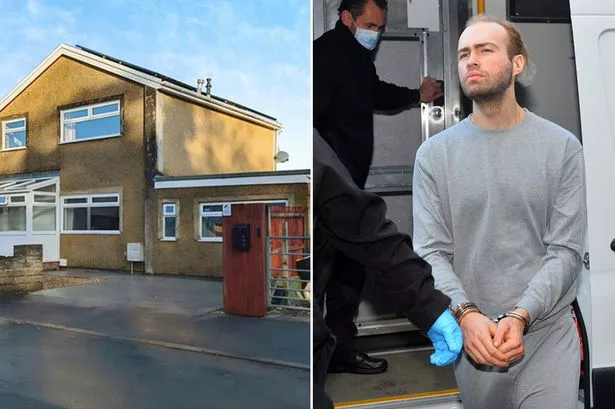The quaint, three-bedroom house nestled in the serene Welsh village of Llantwit Fadre, near Pontypridd, once resonated with the warmth and laughter of family life. For June Fox-Roberts, this unassuming dwelling was more than just bricks and mortar; it was a sanctuary, a place where memories were forged and cherished over decades. Purchased in 1985, the house served as the backdrop to countless family gatherings, holidays, and everyday moments, quietly witnessing the ebb and flow of life within its walls. Little did anyone suspect that this idyllic haven would one day transform into a scene of unimaginable horror, forever etched in the annals of local history as the site of a brutal and senseless murder.
The narrative surrounding June Fox-Roberts’ life and tragic demise is a tapestry woven with threads of normalcy, community involvement, and ultimately, unspeakable violence. A beloved figure in Llantwit Fadre, June was known for her kind heart, unwavering generosity, and active participation in local life. Neighbours recall her as a pillar of the community, always ready with a helping hand or a friendly word. Her deep roots in the village and her genuine warmth fostered a strong sense of belonging, creating a network of relationships that spanned generations. The very community she embraced would later grapple with the jarring reality of her untimely death within the supposed safety of her own home.
The transformation of June’s cherished home from a sanctuary to a crime scene shattered the tranquility of Llantwit Fadre. The peace of the village was irrevocably disrupted, replaced by the chilling presence of police tape, forensic investigators, and the hushed whispers of shocked neighbours. The house, once a symbol of comfort and familiarity, became a grim reminder of the violence that had intruded upon their peaceful community. The stark contrast between the house’s ordinary exterior and the horrific events that transpired within its walls served as a constant, unsettling reminder of the fragility of life and the darkness that can lurk beneath the surface of even the most idyllic settings.
The investigation into June’s murder gripped the community and beyond, becoming a subject of intense media scrutiny. Every detail, from the initial discovery of her body to the subsequent arrest and trial of the perpetrator, Gareth Wyn Jones, was meticulously documented and dissected. The case highlighted the devastating consequences of unchecked anger and the vulnerability of individuals within their own homes. The public’s fascination with the case stemmed not only from the horrific nature of the crime but also from the stark contrast between the victim’s gentle nature and the brutality of her death. The trial exposed the dark undercurrents that can exist even within seemingly peaceful communities, forcing residents to confront the unsettling reality that violence can erupt anywhere, shattering the illusion of safety and security.
The aftermath of June’s murder reverberated throughout Llantwit Fadre, leaving an indelible mark on the community’s psyche. The sense of loss was profound, extending far beyond June’s immediate family and friends. The entire village mourned the loss of a beloved neighbour, a kind soul whose presence had enriched their lives in countless ways. The tragedy served as a stark reminder of the importance of community vigilance and the need to support one another in times of crisis. The healing process was slow and arduous, marked by grief, anger, and a lingering sense of unease. The house itself became a poignant symbol of this collective trauma, a constant reminder of the violence that had shattered their peace.
June Fox-Roberts’ story is a tragic testament to the fragility of life and the devastating consequences of violence. Her murder transformed her beloved home from a sanctuary into a symbol of loss and grief. While the house remains a physical reminder of this horrific event, it also serves as a testament to the resilience of the Llantwit Fadre community. In the wake of tragedy, the community rallied together, offering support to one another and striving to heal the wounds inflicted by this senseless act of violence. June’s memory continues to live on in the hearts of those who knew and loved her, a testament to the enduring power of human connection and the importance of cherishing the moments we share with those we hold dear.














